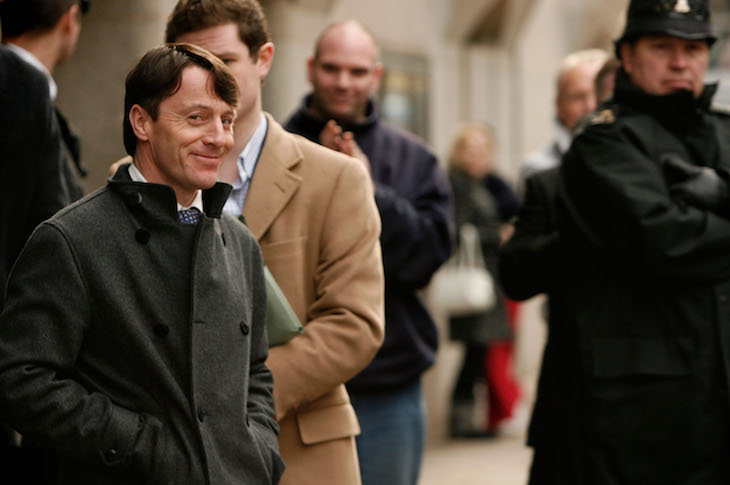Spotting Mark Grant’s name on an Ascot racecard, I remembered a dashing young mop-haired rider I first encountered some years back as stable jockey to the splendid Andy Turnell, with whom I once shared a syndicate horse. Since that first meeting, Mark has not become a household name. Last season he had only 82 rides and produced just four winners. Since April 2013, he has won only 13 hurdles and 14 chases from 564 rides. But here was Mark, hairline receding yet enthusiasm undimmed, riding Count Meribel for the all-conquering Nigel Twiston-Davies stable in a novice hurdle. He rode him well, too, getting the four-year-old into a nice rhythm for a convincing victory that completed a hat trick for the pair after two earlier victories at Carlisle.
With a jump jockey’s riding fee of £165, less the percentage of around 14 per cent all in for an agent, insurance, the Professional Jockeys Association and the on-course physio, plus £17 for the weighing-room valet (with more for extra rides), those 564 rides in five years won’t exactly have kept him in luxury. So how does a ‘journeyman jockey’ like him get by. ‘Oh, I’ve got my own pre-training and breaking yard,’ said the now 36-year-old rider. He has his business, but he rides on because partnering horses in races is a calling, a compulsion, a way of life that it is hard to kick when you know you’ll be a long time retired.
In almost 20 years in the saddle, Mark has ridden nearly 300 winners. He began in Ireland with Enda Bolger, riding his first on Spot the Difference. Then he joined David Wachman at the wrong time. ‘Before he went for the Flat, he had 40 jumpers. When it was down to two, I came over here.’ Racing needs jockeys such as Mark as well as the McCoys and Johnsons. And since the Turnell days there have been rides for Lambourn trainers Charles Egerton, Charlie Mann and his neighbour Dominic Ffrench-Davis. The opportunities now with Nigel Twiston-Davies are thanks to Count Meribel’s owner, Charles Walker. ‘I’m lucky the owner has stayed loyal to me. I’ve ridden him plenty of winners over the years.’ With Count Meribel and a likable bumper horse who ran that day, Bomber’s Moon, owned by Mr Walker and former trainer Jim Old, himself now part of the Twiston-Davies operation, there should be further opportunities for Mark, who insists that while more rides would be welcome, ‘I do my own yard and I like what I’m doing. I’d love to be racing every day but it’s just not feasible.’
Form (Simon & Schuster, £20), the autobiography of former champion Flat jockey Kieren Fallon, a sublime talent who has been through the mill with alcoholism, depression, drug bans and court cases, is another testament to the loyalty within racing. If Sir Michael Stoute, Luca Cumani, Michael Bell and Ed Dunlop were prepared to stand up for Kieren that is good enough for me. Kieren likes horses better than people because they have never let him down. Troubles, some self-inflicted, were shut out when he was on a horse. The horse, he says, was his army and he was confident in his weapons. ‘I knew I was going to get 100 per cent from the horse and it was going to do the best for me. I knew if I got in trouble it was going to get me out of trouble. I knew that I could rely on it. I never felt like that with people.’
His story gives us a graphic picture of the downside of racing at the highest level — the pressures, the ‘flipping’ to keep to an unrealistic weight, the travelling grind — and sadly but inevitably much space is occupied by the various Fallon court cases. For me the best pages are those in which he describes his riding methods, how he used his legs and his body while others used the whip: ‘I could work on a horse from behind the shoulders to keep them at their maximum speed for as long as possible. The whip was the last thing I used… most jockeys want a tight rein on a horse so you are travelling with them but I have a long, loopy rein because I always maintain that if you have a tight rein the horse is using more energy.’ Above all, Kieren used whistling rather than a whip to get his mounts to lengthen and quicken: ‘When I leaned forward and whistled in their ear, they wanted to try to get away from the whistle.’ His story of Kris Kin’s Derby victory is riveting.
Retired since depression took the strength from his legs and the zest from competing, Fallon now happily rides work for Saeed bin Suroor and says he will never stop riding horses. The overriding emotion I was left with after reading Form, though, is sadness that this flawed genius could not have been happier when riding the very best on the racecourse.






Comments